Do young people want to talk about religion? What do we think about sharing our faith? And what about… God?
At a forum organised by the ETHOS Institute for Public Christianity last month, the findings of a recently released study by the Institute of Policy Studies (IPS) were discussed.
What can a methodologically and statistically robust survey on religion in Singapore tell us?
According to Religion in Singapore: The Private and Public Spheres, young Singaporeans mostly fall into two camps: Skeptic Scrappers and Friendly Faithfuls.
WHAT DO YOUNG PEOPLE BELIEVE IN?
1. Over 40% have no doubts that God exists
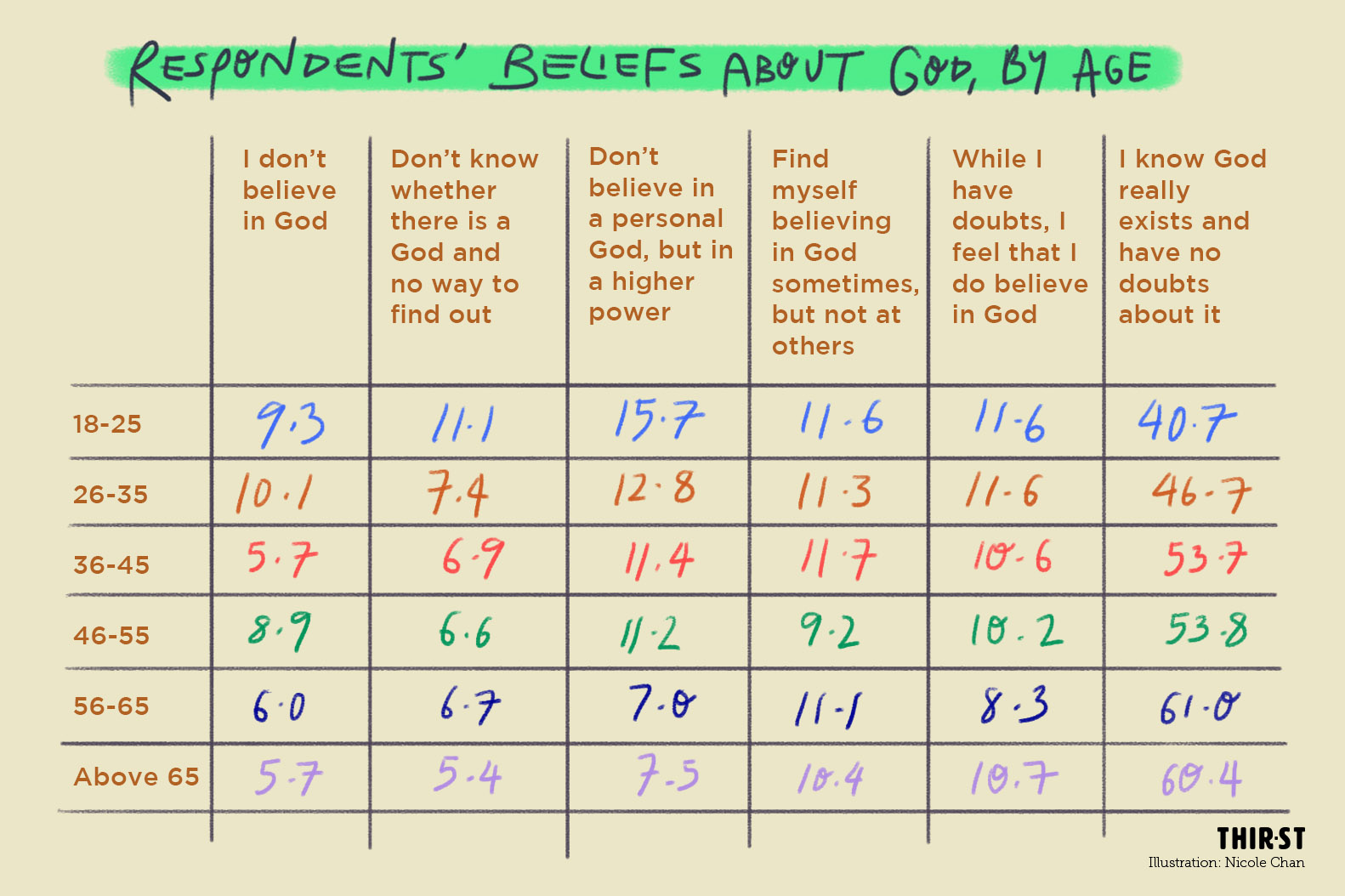
Among the younger respondents, 40.7% of those aged 18-25 and 46.7% of those aged 26-35 “know God really exists and have no doubts about it”. For both age groups, some 23% believed in God despite their doubts.
The others were spread out over a spectrum of doubt, but what it essentially came down to was: Around 10% expressed that they did not believe in God.
When comparing these responses with the older demographic, the researchers noted that “younger respondents were less steadfast when it came to their belief in God”.
However, the reality is that we’re still talking about a large proportion of young people who believed in the existence of God: Over 60% of respondents aged 18-35.
2. They agree that laws should not be based on religion, but are more open to religious leaders speaking up when laws conflict with their religious beliefs
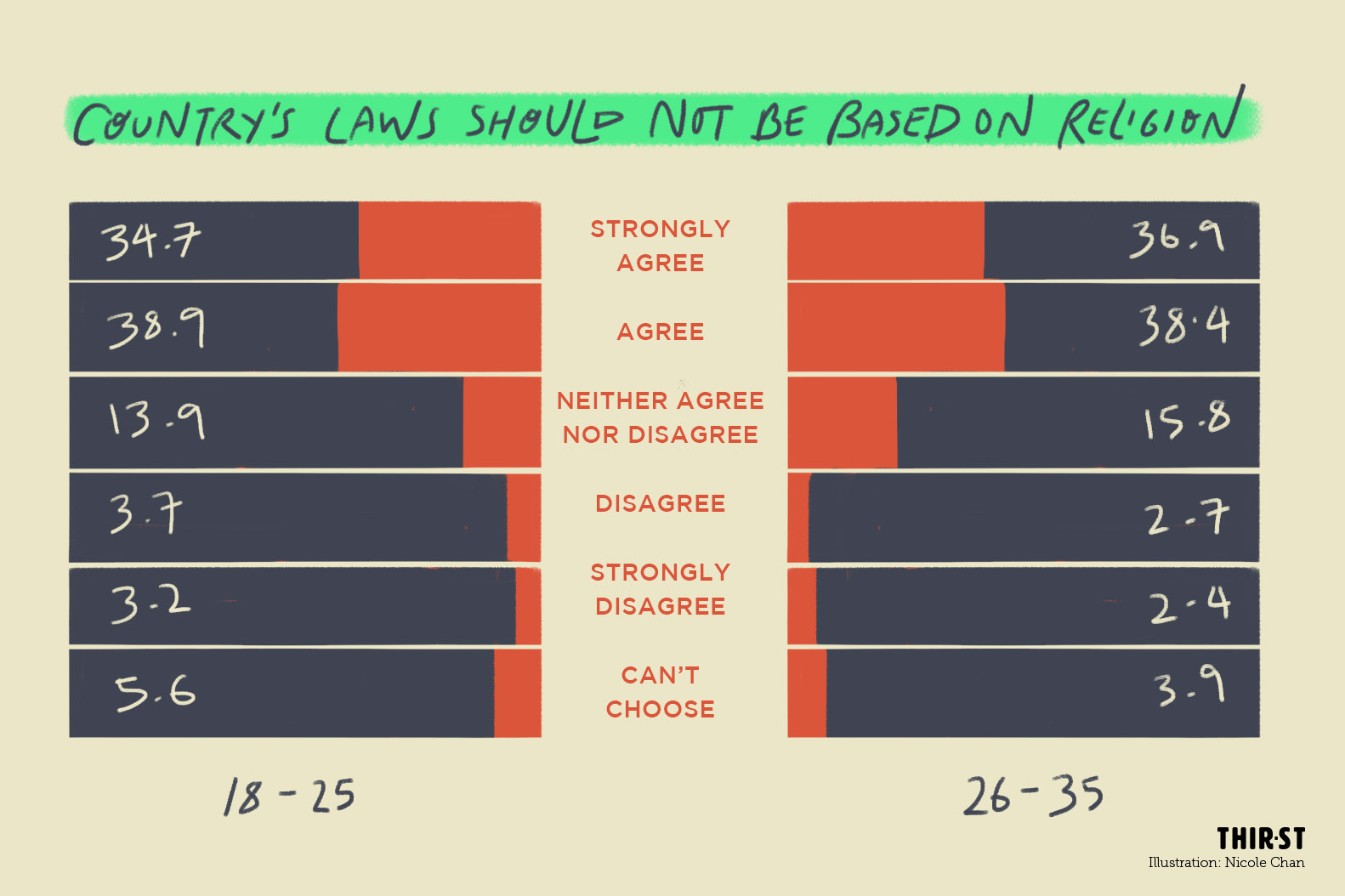
The majority (over 70%) strongly agreed/agreed that a country’s laws should not be based on religion.
However, 18- to 35-year-olds were more likely to find it acceptable/very acceptable for a religious leader to speak up against potential changes to existing laws when it goes against their religious teachings – 33.8% for those aged 18-25 and 26.8% for those aged 26-35 (see graphic below).
This percentage decreases accordingly with age, with only 15.4% of those above 65 years old finding it to be acceptable/very acceptable.
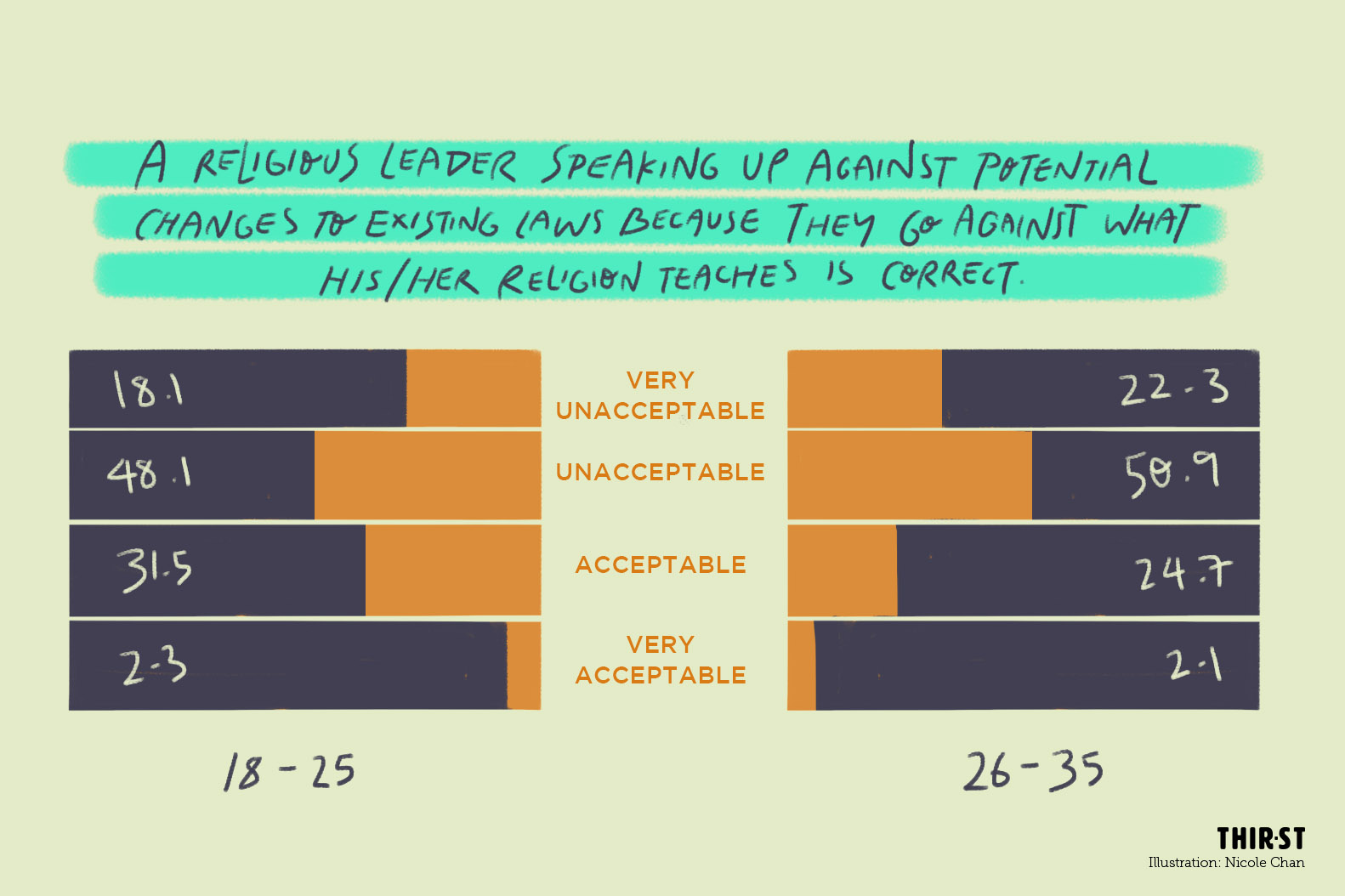
3. More than 50% are accepting of religious leaders who encourage followers to share their religion with others
Of all the age groups, those aged 18-35 were most likely to find it acceptable/very acceptable for religious leaders to encourage followers to share their religion with strangers in public. Slightly over half (50%+) believed it to be acceptable/very acceptable, compared to older respondents (30-50%).
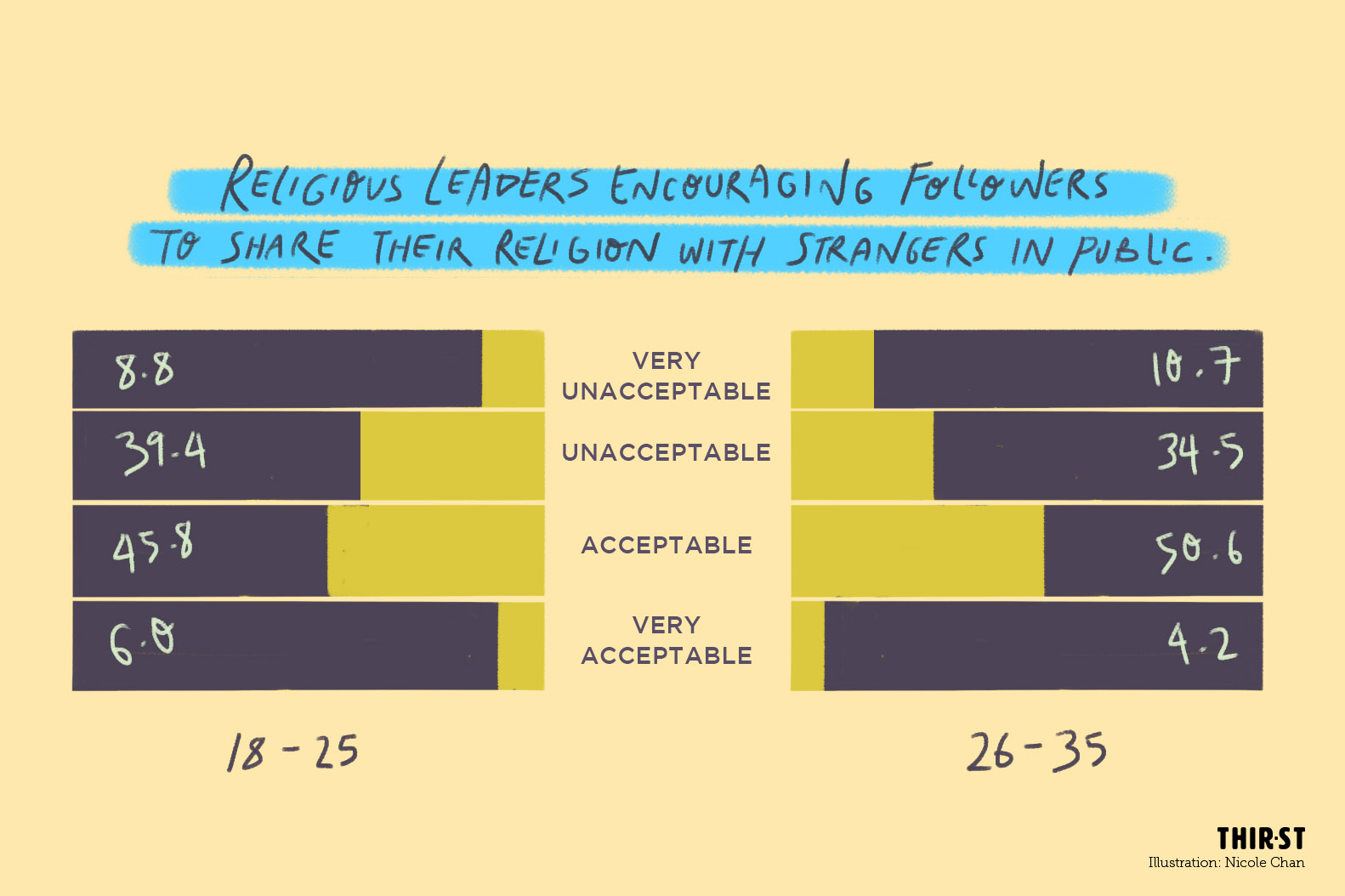
4. They are likely to be a Skeptic Scrapper or Friendly Faithful
Based on their opinions towards religion and politics, the study identified 4 types of Singaporeans: Sacred Seculars, Tepid Traditionals, Skeptic Scrappers and Friendly Faithfuls, with the last two having a sizeable number of young people.
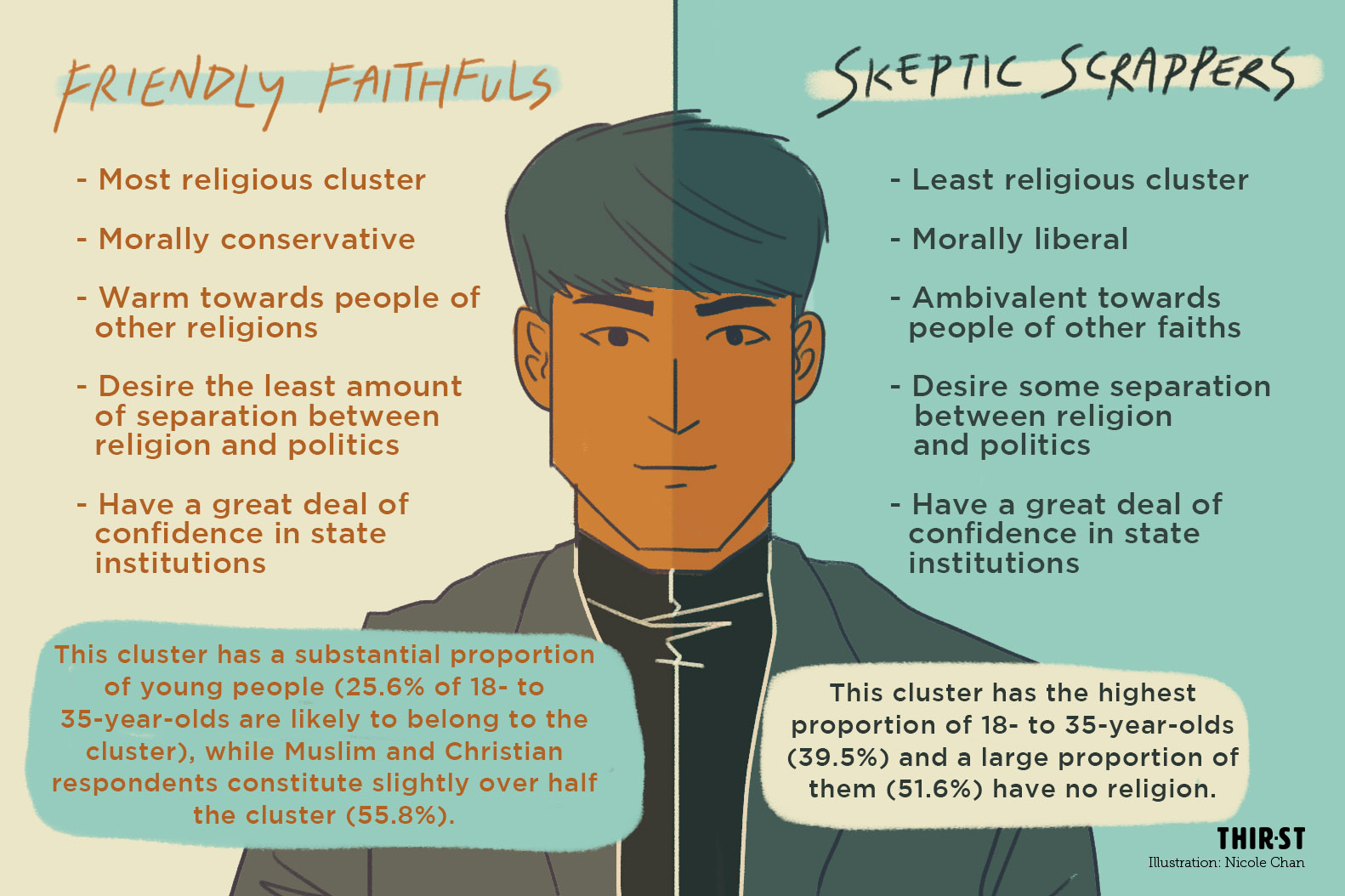
Speaking at the forum on findings that might have most relevance to Christians, one of the paper’s authors, IPS Senior Research Fellow, Dr Mathew Mathews, pointed out that the strong religious voice among the Friendly Faithfuls doesn’t undermine their warmth towards people of other religions.
HealthServe co-founder and chairman, Dr Goh Wei Leong, said that from his own interactions with younger people over coffee, he too observed that Friendly Faithfuls across different religions shared similar attitudes on “wanting to make their lives count”, for instance.
What jumped out at him instead was the “stark inter-generational difference” when comparing the responses by the Baby Boomers vs Millennials (see next point).
5. They tend to have more liberal attitudes towards moral issues
“While generally unsupportive of non-traditional morality, those who are younger and more educated were a little more liberal on issues such as abortion and homosexuality,” said Dr Mathews.
And when you break it down into specific issues, the results show that young Singaporeans were the most united in their views against infidelity but more divided on their stance towards abortion and homosexual sex.
Over 90% of respondents aged 18-35 indicated that infidelity is “always wrong” “or almost always wrong”.
As for their views towards sexual relations between adults of the same sex, 18- to 25-year-olds were the most accepting: 40.8% said it was “not wrong at all”. On the other end of the spectrum, 37% in the same demographic thought that it was “always wrong”. Overall, 59.3% considered homosexual sex to be wrong, even if “wrong only sometimes”.
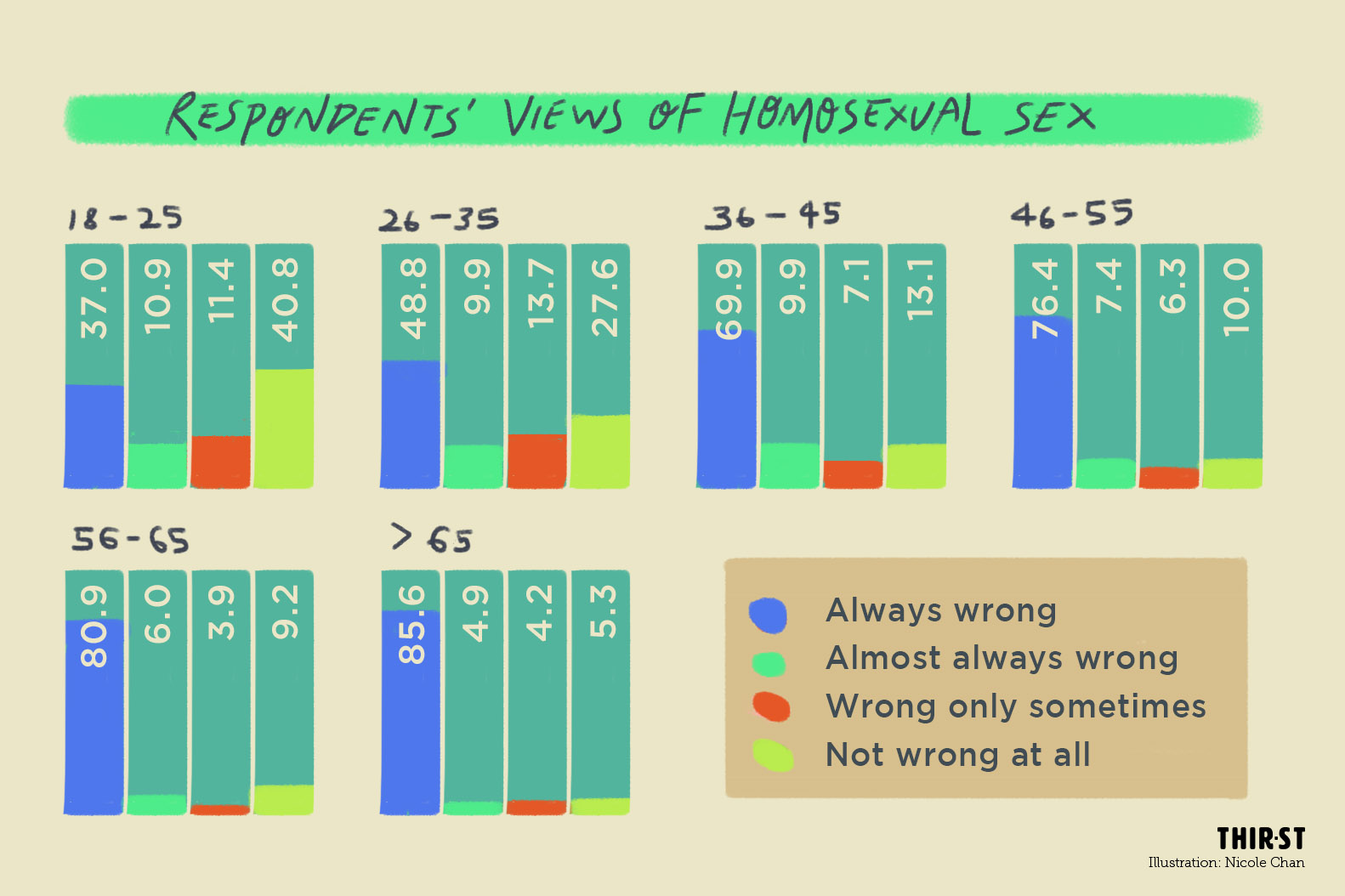
Those aged 26-35 were less accepting, with the percentage of those who felt that it was “not wrong at all” dropping to 27.6%. Inversely, a higher proportion (48.8%) said it was “always wrong”. The majority (72.4%) in this age group thought homosexual sex was wrong.
Expressing concern for the Christian community, Bishop Emeritus Dr Robert Solomon, the former bishop of the Methodist Church of Singapore, noted the “obvious difference between beliefs, attitude or practices between younger people and older people”.
He also reflected on what these results meant with regard to the influence of scripture on world views.
“We need to maintain that authority of Scripture… biblical literacy is very important,” Dr Solomon said, adding that holding on to the authority of scripture will continue to be a challenge, especially in an ideologically diverse community like Singapore’s.
“How we actually instruct new members, our children and so on is very important because that will determine the quality of our faith and our obedience to Christ.”









